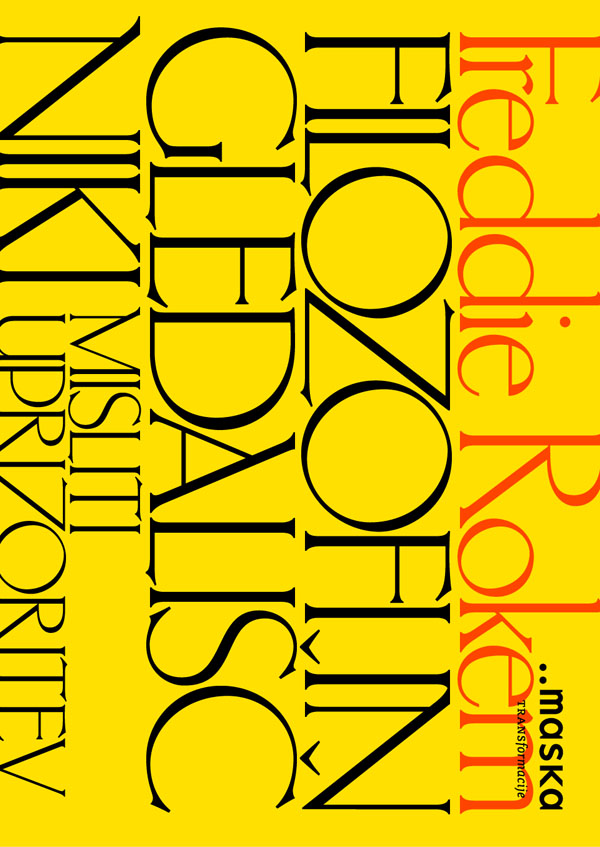Philosophers and Thespians: Thinking Performance

On the one hand, the question of the relationship between philosophy and theatre (or performance) is one of the oldest questions in history, as seen by the famous Plato’s allegory of the cave as a distinctly theatrical allegory. On the other hand, this question proved to be an important field of innovative research, which is at least partly due to Freddie Rokem.
In this new field, Philosophers and Thespians offers an overview of four direct meeting between philosophers and thespians: from Socrates meeting Agathon and Aristophanes in Plato’s Symposium, to the talk between Walter Benjamin and Bertolt Brecht on the short text by Franz Kafka. Rokem does a detailed analysis of the complex and tragic division of Hamlet as a philosopher and thespian, and of the intense correspondence between Friedrich Nietzsche and August Strindberg. His research focuses both on the story as on the historic background, reaching its peak with the debate on the concept of the performative as derived from the discursive practices of philosophy and performing arts.
The book explores the relationships between the discursive practices of theatre and philosophy, focusing on four concrete and specific meetings between philosophers and thespians. By “thespians”, it understands everyone who is in any way connected to the theatre or who creates theatre and its performances.
TRANSformacije Collection, book no. 42
Original title: Philosophers and Thespians: Thinking Performance
Translation: Jernej Županič
© Maska, Ljubljana, 2019
221 pages, 17 × 24cm
ISBN 978-961-6572-52-1
This book was published in Slovenian.
Excerpt
“But if Polonius is constantly presented by way of parody and jest, then Hamlet is often presented as a confused and yet completely serious and very dedicated thespian, at least from Hamlet’s own perspective. Role-playing and its effects is one of the most frequently discussed topics in Shakespeare’s play. However, as the present discussion emphasizes, at the same time as Hamlet theatricalizes his thinking, presenting his own subjectivity in obvious performative terms, being ‘mad in craft,’ he employs the theatre for purely philosophical goals, in particular in The Mousetrap performance, to examine if the ghost has spoken the truth. The theatricalization of the self and the philosophical uses of the theatre are for Hamlet two sides of the same coin, contributing to his fatally configured liminality. He is both philosopher and thespian yet unable to distinguish clearly between the two.”
Freddie Rokem, Philosophers and Thespians
Table of contents
Predgovor
Uvod
PRVI DEL. SREČANJA
PRVO SREČANJE
Platonov Simpozij in starodavni spor med filozofijo in pesništvom
KDO JE?
Hamlet kot filozof in gledališčnik
SAMOUPRIZARJANJE
Korespondenca Nietzsche-Strindberg
RAZPRAVA WALTERJA BENJAMINA IN BERTOLTA BRECHTA O FRANZU KAFKI
Izgnanska potovanja
DRUGI DEL. KONSTELACIJE
NESREČE IN KATASTROFIČNE KONSTELACIJE.
Performativne agende
ŽELJE, OBLJUBE IN GROŽNJE
Perofrmativno pripovedovanje Walterja Benjamina
Bibliografija
Mirt Komel
TESPIJSKA FILOZOFIJA FREDDIJA ROKEMA
Spremna beseda
Imensko in stvarno kazalo
About the Author

Freddie Rokem is professor emeritus at the Department of Theatre Studies, University of Tel Aviv, where he was the Dean of the Faculty of Arts between 2002 and 2006 and held the Emanuel Herzikowitz Chair for 19th and 20th Century Art between 2006 and 2016. He is currently the Wiegeland Visiting Professor of Theater & Performance Studies (TAPS) at the University of Chicago. He is the author of numerous books such as Jews and the Making of Modern German Theatre (2010, co-editor with Jeanette Malkin), Strindberg’s Secret Codes (2004), and the award-winning Performing History: Theatrical Representations of the Past in Contemporary Theatre (2000). Between 2006 and 2009, he was the editor of Theatre Research International, between 2012 and 2017, a co-editor of the “Performance Philosophy” collection at Palgrave Macmillan; je is also one of the co-founders of the rapidly evolving international network of researchers with the same name. Freddie Rokem is also active as a dramaturg.
Reception in Public
Filozofi in gledališčniki v Novi pošti pretresali uprizarjanje konceptov
MMC RTV SLO / 19. 9. 2019
On the one hand, the question of the relationship between philosophy and theatre (or
performance) is one of the oldest questions in history, as seen by the famous Plato’s allegory
of the cave as a distinctly theatrical allegory. On the other hand, this question proved to be an
important field of innovative research, which is at least partly due to Freddie Rokem, a
leading theorist and historian of European theatre and performativity.